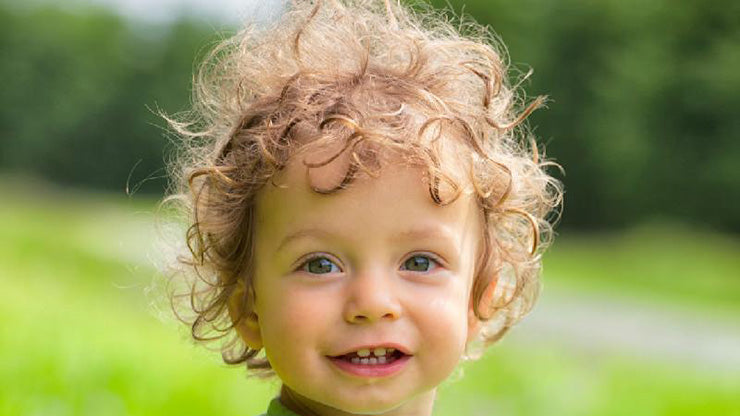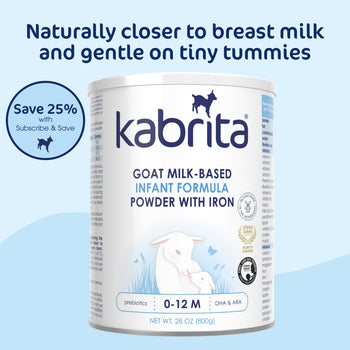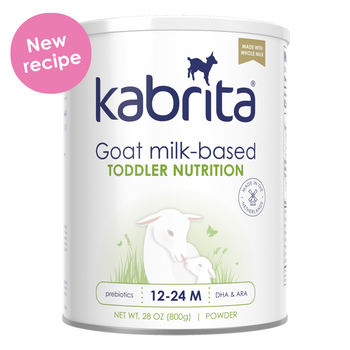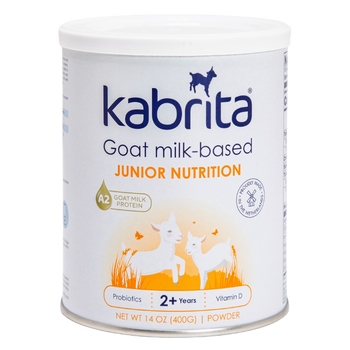How improving kids' gut health can boost their mood

As parents, we tend to spend more time worrying about keeping kids away from harmful bacteria than we do thinking about the role of the healthy bacteria that lives in their gut. But paying attention to gut health (and understanding the powerful role of nutrition!) has a host of benefits – including helping kids regulate mood and behavior.
By Dr. Annie Salsberg, N.D.
It’s reported that the microorganisms in the intestine outnumber cells in the body by ten to one – meaning even at a very young age, children have many trillions of bacteria living in their gut. The role of these bacteria – the gut microbiota – in improved digestion and immune function has been well established. Now, new research has uncovered a further connection that exists between the microbiota of the gut and the central nervous system and brain.
How does the gut influence the brain?
Scientists used to think that communication went exclusively top-down, from the brain to the gut; for example, stressful or anxious events can lead to changes in appetite, constipation or even loose stools. Now, it’s recognized that this interaction is much more ‘bi-directional’. This means that it’s a two-way street: the brain impacts gut function, and the gut impacts brain function.
The health of gut microbiota appears to influence emotional behaviors such as the stress response, anxiety, memory function, and how pain is perceived. Intestinal dysbiosis, the microbial imbalance where increased levels of harmful bacteria are present relative to beneficial bacteria, has not only been associated with inflammatory processes and possibly auto-immune disease, but it may also contribute to behavioral changes.
For example, in a double-blind, placebo-controlled trial, it was reported that a 30-day administration of beneficial bacteria lowered psychological distress and depression, decreased anger and hostility, lessened anxiety, and improved problem-solving, compared with a placebo group.
The role of nutrition
There are lots of factors that can affect gut health in children – genetics will play a role, but the baseline starts in utero and is dependent on what mom eats, delivery, and breastfeeding. The gut microbiota is dynamic, and continues to evolve through infancy and early childhood. It can be impacted by medications, such as antibiotics, and stress. The biggest modifiable factor for most people, however, is nutrition. If our gut microbes are like an internal garden, diet is the soil and feed.
Foods that may harm
Diets high in fat and sugar have been shown to harm the structure and function of the microbiota, so an easy step to improving gut health for kids is to reduce sugar intake at home.
Very high protein diets, and diets rich in sulfur compounds have also been shown to negatively impact the gut microbiota, so keep meals balanced, and try to steer clear of preservatives commonly found in certain dried fruits, packaged fruit juices, and pre-packaged baked goods and breads.
Large amounts of sulfur-containing amino acids are also found in cow milk, cheese, eggs, meat, and cruciferous vegetables. Regular consumption of large amounts of these foods has been shown to adversely impact the gut microbiota.
Since food sensitivities may be both the cause AND effect of gut injury –that is, connected to intestinal hyper-permeability (leaky gut) and intestinal dysbiosis – it’s important to identify and then to remove these potential food triggers from the diet.
Foods that heal
The good news is that the gut microbiota responds quickly to positive changes in the diet. To support your child’s microbiota, continue to choose whole foods where possible. When choosing snacks on the go, look out for snacks free from preservatives and added sugar.
Dietary fiber is critical, as it’s needed to feed and cultivate healthy bacteria. It’s a good idea to offer the whole family of foods rich in dietary fiber, such as vegetables, fruits, psyllium, flax, and inulin.
Fermented foods such as natto, kimchi, miso and sauerkraut may also be a great option to consider, as they are full of probiotics, which promote healthy gut bacteria.
As parents, the greatest tool we have in raising healthy happy kids is ensuring their diet is working toward the same goal we are. By promoting a healthy gut, we aren’t just helping them digest food better and stave off illness, we’re giving them a good gut feeling that translates to better behavior and greater happiness.
Dr. Annie Salsberg is a board-certified naturopathic physician and Nutritional Science and Education Manager at KABRITA.
Don’t forget to follow us on Twitter, Pinterest and Instagram, and like us on Facebook for more nutrition and parenting tips!



